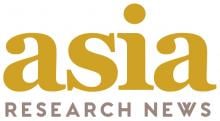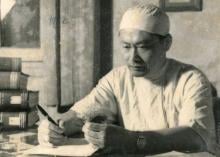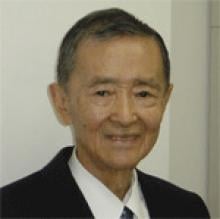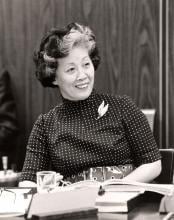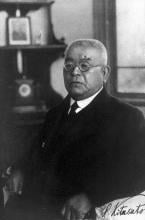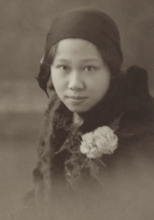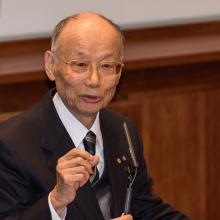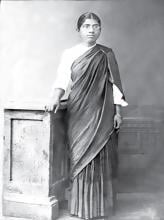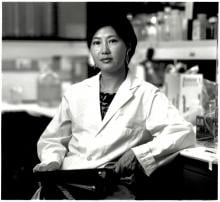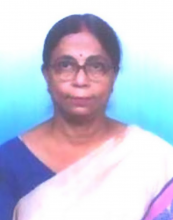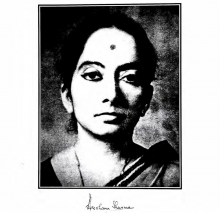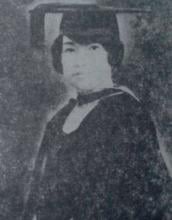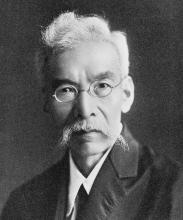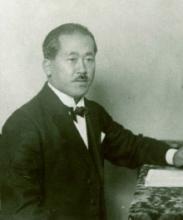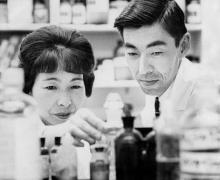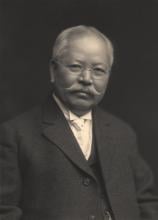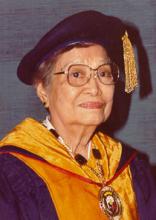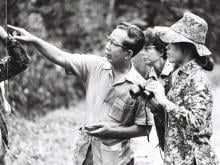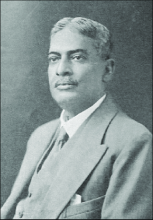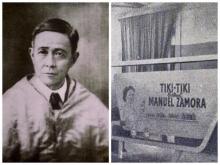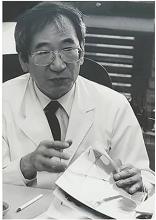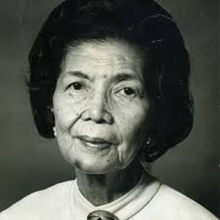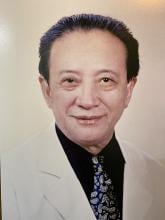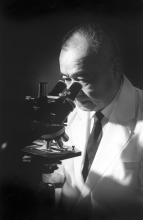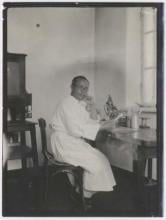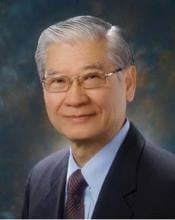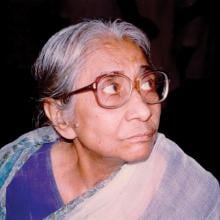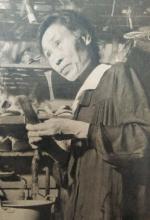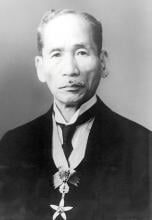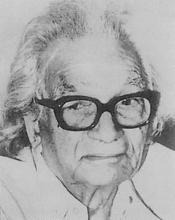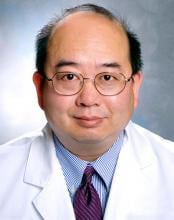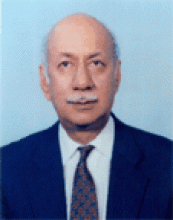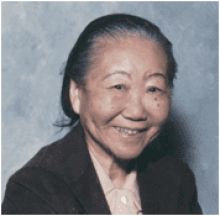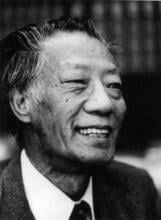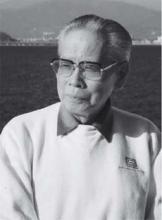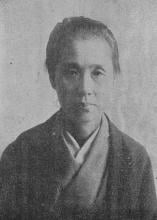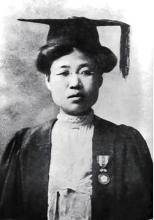Medicine
News
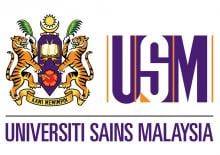
02 Nov 2005
Campylobacter jejuni is one of the major causes of diarrhoea in human and animals especially in developed countries. EZ Campy DNA kit was designed and developed to detect for Campylobacter jejuni within 3 hours.

02 Nov 2005
Highlights from Nature, Vol.438, No.7064 Dated 03 November 2005 including Bacteria use light to drive 'animal' metabolism; Bridging a wobbly gap

01 Nov 2005
Doctors think they have hit on a way to double supplies of the scarce antiviral drug Tamiflu, reports a news exclusive in Nature this week.
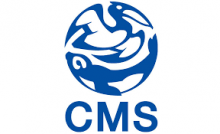
30 Oct 2005
Discussions on avian influenza dominated this inter-governmental conference that took place from 23-27 October.

30 Oct 2005
3rd Session of the meeting of the Parties to the Agreement on the conservation of African-Eurasian Migratory Waterbirds (AEWA), 23 – 27 October 2005, Dakar, Senegal

30 Oct 2005
NATURE AND THE NATURE RESEARCH JOURNALS PRESS RELEASE - For papers that will be published online on 30 October 2005

30 Oct 2005
This study was formulated with an objective of studying the factors influencing the utilization of health services in the spectrum of antenatal, intranatal and postnatal periods of a mother.

30 Oct 2005
Researchers have turned human embryonic stem (hES) cells into a cell type found in human embryos that ultimately forms the pancreas, liver, lungs, and
other organs.

27 Oct 2005
Scientists caution against premature finger-pointing at migratory wild birds, indicating that more needs to be known about their precise migratory routes and where they stop, and to understand which species may be more susceptible to such a virus.

27 Oct 2005
International Scientists warned against panic responses based on the assumption that wild birds are the only cause of avian flu

26 Oct 2005
The deadly H5N1 bird flu virus is expected to be carried by migrating birds into east Africa within weeks; US doctors have launched a clinical trial to assess the effects of allowing couples to choose the sex of their unborn children

26 Oct 2005
Shark has mammal-like swimming muscles; Prometheus bound to Saturn's rings; Promoting brain cell growth in adult rats; Rocket-fuelled bacteria clean up waste; Molecular motor spins on a surface; Einstein's and Darwin's letter-writing habits

23 Oct 2005
Nature and the Nature Research Journals Press Release-For papers published online on 23 October 2005

23 Oct 2005
A simplified strategy for modifying complex sugar molecules, could dramatically increase the ease and speed with which scientists tackle important issues relating to tumor detection and the pathology of infectious diseases.

23 Oct 2005
Commercial haemosthetic agents available in the market are expensive and most of them are produced from animal gelatine and therefore not acceptable for some segments of the community

23 Oct 2005
The September issue of The Keio Journal of Medicine is now online.

19 Oct 2005
Highlights of Papers in Nature Vol 437 No 7062 Date 20 Octobed 2005

19 Oct 2005
Academics and physicians who write the rules on how to prescribe drugs have extensive financial connections with the pharmaceutical industry, according to an investigation by Nature.

18 Oct 2005
Some patients who suffer a right-hemisphere stroke develop a syndrome called 'neglect', in which they ignore the entire left side of their bodies. Researchers have found that this is caused by intact areas of the brain connected to the damaged areas.

18 Oct 2005
It seems possible to prevent I-R injury by the administration of some medicament before reperfusion and by regulation of endogenous antioxidant enzymes.

16 Oct 2005
A study was conducted in 96 females suffering from PMS. Behavioral symptoms appearing during PMS were noticed. It was found that there is a substantial link between PMS and behavior alterations. Depression, aggression, irritability etc.

16 Oct 2005
Scientists have found a new drug candidate that can be used to stop the liver-damaging Hepatitis C virus (HCV) from multiplying.

16 Oct 2005
NATURE AND THE NATURE RESEARCH JOURNALS PRESS RELEASE - For papers that will be published online on 16 October 2005

16 Oct 2005
Young boys were allegedly kidnapped and kept under illegal custody for months together. After demoralization had set in due to prolonged confinement, surgery was done on their private parts and female hormones were given to the persons.

14 Oct 2005
USM bagged 8 gold medals, 6 silver medals and 2 bronze medals as well as 2 special jury awards namely the Special Award for ICT and the Special Award for Best Joint Venture.

14 Oct 2005
The age of ossification of different centers at wrist joint i.e. Carpals and lower ends of radius and ulna have been studied in pediatric age group in central Rajasthan. The study included 244 healthy children of both sexes up to 12 years of age

14 Oct 2005
The paper raises the possibility that the current prophylactic regimen for Tamiflu (oseltamivir) may have contributed to the emergence of partial resistance to the drug in a Vietnamese patient.

12 Oct 2005
More from Nature - Abnormal chromosome numbers produce tumours; Short-term earthquake prediction still elusive; South American dinosaur updates family tree; Viruses energize host cells

12 Oct 2005
Males preferred poisoning and hanging whereas females preferred self-immolation (burns) to end their own lives.
Researchers
Sorry, no researchers coming up for this topic.
- « first
- ‹ previous
- 1
- 2
- 3
- 4
Giants in history
Vietnamese surgeon Tôn Thất Tùng (10 May 1912 – 7 May 1982) developed a pioneering technique that reduced the risks and mortality rate of liver operations.
Michiaki Takahashi (17 February 1928 – 16 December 2013) was a Japanese virologist who developed the first chickenpox vaccine.
Irene Ayako Uchida’s (8 April 1917 – 30 July 2013) strides to understand genetic diseases such as Down syndrome paved the way for early screening of chromosomal abnormalities in foetuses.
Baron Kitasato Shibasaburo (29 January 1856 – 13 June 1931) was a Japanese physician and bacteriologist whose work led to a new understanding of preventing and treating tetanus, diphtheria and anthrax.
Maggie Lim (5 January 1913 – November 1995) was a Singaporean physician who promoted family planning and expanded the access to clinics to improve the quality of life for mothers and children in Singapore’s early days.
By isolating soil microorganisms and studying the compounds they produce, Satoshi Omura (born 1935) discovered almost 500 organic compounds with unique properties that were produced by these microorganisms, including many new antibiotics.
The founder of the Adyar Cancer Institute in India, Muthulakshmi Reddy (30 July 1886 – 22 July 1968), fought to uplift women and girls from impoverished situations.
Chinese-American virologist and molecular biologist Flossie Wong-Staal (27 August 1946 – 8 July 2020) was the first scientist to clone HIV and determine the function of its genes.
Maharani Chakravorty (1937 – 2015) was one of India’s earliest molecular biologists whose research paved the way for advances in the treatment of bacterial and viral infections.
Archana Sharma (16 February 1932 - 14 January 2008) conducted research into plant and human genetics that expanded the understanding of both botany and human health. In relation to botany, she uncovered the means by which asexually-reproducing plants evolve into new species.
The first Thai woman to receive a degree in medicine, Margaret Lin Xavier (29 May 1898 – 6 December 1932), is best remembered for her compassion towards her less privileged patients.
In 1915, pathologist Katsusaburo Yamagiwa and his research assistant Koichi Ichikawa became the first to prove that chronic exposure to chemicals can cause cancer.
In 1915, Koichi Ichikawa along with pathologist Katsusaburo Yamagiwa became the first to prove that chronic exposure to chemicals can cause cancer.
Husband and wife team, Kimishige (3 December 1925 – 6 July 2018) and Teruko Ishizaka (28 September 1926 – 4 June 2019) discovered the antibody class Immunoglobulin E (IgE) that triggers allergic reactions. They also discovered that IgE antibodies attach to white blood cells, known as mast cells, releasing histamine, which causes allergic reactions.
Husband and wife team, Kimishige (3 December 1925 – 6 July 2018) and Teruko Ishizaka (28 September 1926 – 4 June 2019) discovered the antibody class Immunoglobulin E (IgE) that triggers allergic reactions. They also discovered that IgE antibodies attach to white blood cells, known as mast cells, releasing histamine, which causes allergic reactions.
Japanese chemist Takamine Jokichi (3 November 1854 – 22 July 1922) founded the Tokyo Artificial Fertilizer Company, where he isolated a starch-digesting enzyme (named takadiastase) from the fungus Aspergillus oryzae.
Ground-breaking cancer researcher Kamal Jayasing Ranadive (8 November 1917 – 11 April 2001) advanced the understanding of the causes of leukaemia, breast cancer and oesophageal cancer through the use of animal models. She was also among the first to recognise how susceptibility to cancer is linked to tumour-causing interactions between hormones and viruses.
The research of Filipino pharmaceutical chemist Luz Oliveros-Belardo (3 November 1906 – 12 December 1999) focussed on essential oils and other chemicals derived from native Philippine plants.
Thai physician and conservationist Boonsong Lekagul (1907 – 1992) made major contributions to the preservation of his country’s wildlife.
Indian scientist and physician Upendranath Brahmachari (19 December 1873–6 February 1946) is best known for creating a drug called Urea Stibamine, used to safely and reliably treat visceral leishmaniasis (or Kala-azar), a severe infection caused by the Leishmania parasite.
Filipino chemist and pharmacist Manuel A. Zamora (29 March 1870 – 9 July 1929) is best remembered for his discovery of the tiki-tiki formula to combat beriberi, a disease caused by Vitamin B1 deficiency.
Korean parasitologist Seung-Yull Cho (16 November 1943 – 27 January 2019) is remembered largely for his pioneering works to control infections caused by helminthic parasites and his contribution to journal publishing.
Fe Villanueva del Mundo (27 November 1911 – 6 August 2011) was a Filipina paediatrician who founded the Philippines’ first paediatric hospital.
After witnessing death and suffering as a youth in his home village during World War II, Nguyễn Tài Thu (6 April 1931 – 14 February 2021) set his sights on alleviating pain by becoming a doctor. After studying Traditional Chinese Medicine in China in the 1950s, Thu returned to Vietnam to serve in military hospitals. Eventually, he became the country’s foremost practitioner of acupuncture, a technique he first learned by inserting needles into himself.
Minoru Shirota (April 23, 1899 – March 10, 1982) was a Japanese microbiologist who invented the popular fermented drink Yakult.
Wu Lien-teh (10 March 1879 – 21 January 1960) was a Malaysian-born doctor who invented a mask that effectively suppressed disease transmission. Winning the prestigious Queen’s Scholarship enabled Wu to become the first Chinese student to study medicine at the University of Cambridge.
David T. Wong (born 1936) is a Hong Kong-born American neuroscientist who is best known for discovering the antidepressant drug fluoxetine, better known as Prozac.
Indian organic chemist Asima Chatterjee (1917 to 2006) studied the medicinal properties of plant products, especially compounds known as vinca alkaloids.
Chika Kuroda (24 March 1884 – 8 November 1968) was a Japanese chemist whose research focussed on the structures of natural pigments.
Umetaro Suzuki (7 April 1874 – 20 September 1943) was a Japanese scientist best remembered for his research on beriberi, a disease caused by vitamin B1 deficiency, characterized by limb stiffness, paralysis and pain.
Salimuzzaman Siddiqui (19 October 1897 – 14 April 1994) was an artist and chemist from Pakistan whose research focused on natural products from plants.
Barry Paw (29 August 1962 – 28 December 2017) was a biologist and oncologist who discovered several novel genes and their functions in red blood cells.
Syed Qasim Mehdi (13 February 1941 – 28 September 2016) was a Pakistani molecular biologist who was a founding member of the Human Genome Diversity Project (HGDP), which assessed human diversity by studying human migration, mutation rates, relationships between different populations, genes involved in height and selective pressure.
Tsai-Fan Yu (1911 – 2 March 2007) was a Chinese-American physician and researcher who was the first female full professor at Mount Sinai School of Medicine. She discovered that gout, a condition characterized by the painful inflammation of joints, was caused by elevated levels of uric acid in the bloodstream.
Min Chueh Chang (10 October 1908 – 5 June 1991) was a Chinese-American biologist who studied fertilization in mammalian reproduction.
A Japanese surgeon, Tetsuzo Akutsu (20 August 1922 – 9 August 2007) built the first artificial heart capable of keeping an animal alive.
Ogino Ginko (3 March 1851 – 23 June 1913) was the first registered female doctor to practise modern medicine in Japan.
Esther Park (1877-1910), born Kim Jeom-dong, was the first female Korean physician to practise modern medicine in Korea and trained the first generation of Korean female doctors.


